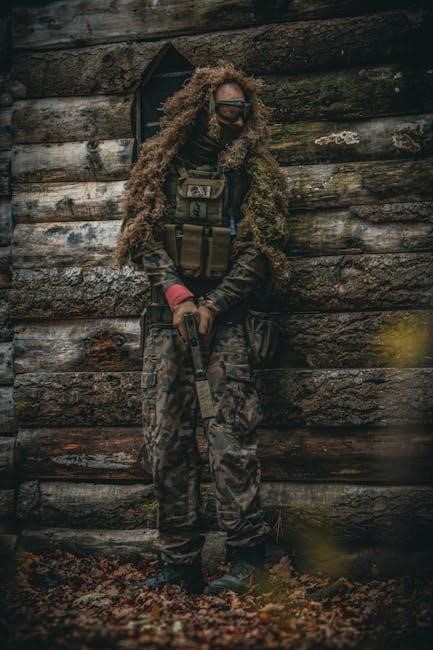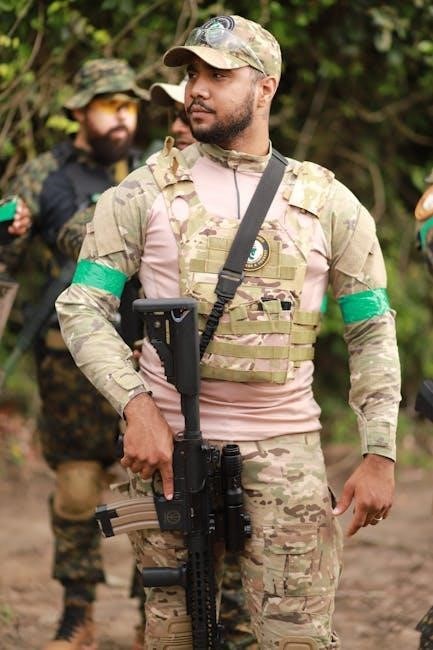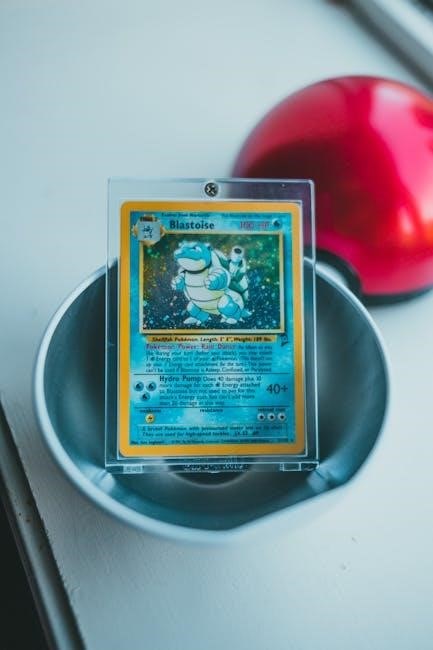Worst-Case Scenario Game Questions PDF: A Comprehensive Guide
This guide explores the Worst-Case Scenario Game, focusing on its questions and how to access them in PDF format. Discover the game’s trivia, survival tactics, and unique challenges, plus how to use scenarios from the book.
The Worst-Case Scenario Game is a unique trivia-style game inspired by “The Worst-Case Scenario Survival Handbook.” It combines elements of trivia and practical knowledge, challenging players to navigate hypothetical and often humorous, disastrous situations. Players test their knowledge of survival skills, expert advice, and problem-solving in bizarre scenarios. The game aims to entertain while prompting critical thinking about handling unexpected challenges, drawing on the book’s themes of preparedness and resourcefulness in facing the ridiculous and the serious alike. It provides a lighthearted approach to confronting anxieties about navigating life’s unexpected hurdles.
Objective of the Game
The primary goal in The Worst-Case Scenario Survival Game is for a player or team to reach the finish line on the game board before their opponents. This is achieved by accurately answering scenario-based questions related to survival techniques, expert knowledge, and challenge scenarios. Success hinges on a blend of quick thinking and familiarity with survival strategies. The game fosters a fun environment, encouraging players to apply critical thinking to unusual situations and showcasing the importance of resourcefulness when facing hypothetical worst-case scenarios. Progress is made by correctly navigating these challenging scenarios.
Components of the Game
The Worst-Case Scenario Survival Game includes several key elements designed to facilitate engaging gameplay. A game board serves as the playing field, guiding players towards the finish line as they answer questions. Four playing pieces represent the competitors as they navigate the board. Central to the game are 300 Worst-Case Scenario Survival Question Cards, each presenting a unique hypothetical situation. Each card offers a question and three possible answers on each side of the card, with the correct answer printed in bold. A die determines how many spaces a player advances, adding an element of chance and strategy to the game.
Gameplay Mechanics
Gameplay in the Worst-Case Scenario Game revolves around answering questions, advancing on the board, and utilizing special spaces. Correct answers propel players forward, while strategic decisions influence their path to victory.
Answering Question Cards
Players face Worst-Case Scenario Survival Question Cards, each presenting a scenario and multiple-choice answers. Selecting the correct answer allows advancement in the game. The questions can range from practical survival tips to humorous situations. Team 2 picks a card and reads the question to Team 1, who must then choose the best option. Correct answers are typically printed in bold, aiding in verification. The game blends trivia with problem-solving, testing knowledge in hypothetical, often absurd, situations. Success hinges on quick thinking and a bit of luck.
Advancing on the Game Board
Progress on the Worst-Case Scenario Game board depends on correctly answering questions. Players move their pieces toward the finish space. The first player or team to reach the end wins. The game combines trivia and practical survival knowledge. Each successful answer allows players to advance, bringing them closer to victory. The game board represents a journey through increasingly challenging situations. Strategic thinking and accurate answers are key to outmaneuvering opponents and reaching the final destination. A die is used to navigate the game, adding an element of chance to the advancement process;
Yellow Spaces and Gold Tokens
In the Worst-Case Scenario Game, yellow spaces on the game board offer a unique advantage. Landing on a yellow space and correctly answering a question earns the player a gold token. These tokens act as bonuses within the game. They might provide extra movement or the ability to challenge other players. The gold tokens add a layer of strategy, encouraging players to aim for yellow spaces. Successfully navigating these spaces and accumulating tokens can significantly increase a player’s chances of winning. Yellow spaces and gold tokens are crucial for strategic gameplay.

Types of Questions
The game features diverse questions to test decision-making skills in crazy situations. These involve survival, expert knowledge, and challenges, ranging from common sense to ridiculous scenarios that might happen.
Survival Scenarios
These questions test your ability to handle unexpected and dangerous situations. They cover a wide array of hypothetical crises where your actions determine your fate. Questions involve prioritizing safety, resourcefulness, and quick thinking in adverse conditions, such as being lost at sea or trapped in a burning building. They demand practical knowledge and composure under pressure, challenging players to consider the best course of action when facing extreme and life-threatening circumstances, drawing from real-world survival skills and critical decision-making processes.
Expert Knowledge
This category assesses your understanding of specialized skills and information that could prove vital in a crisis. These questions delve into diverse fields, requiring a broad base of knowledge beyond common sense. For example, CPR and first aid or identifying edible plants could be covered. Expect questions that probe your familiarity with technical procedures, scientific principles, and obscure facts. These challenges require careful consideration and often hinge on recalling specific details or applying learned expertise to unconventional situations. Success relies not just on intuition but on a foundation of expert understanding.
Challenges
Within the Worst-Case Scenario Game, the “Challenges” category presents players with dilemmas requiring practical decision-making and problem-solving skills. These questions move beyond theoretical knowledge and demand inventive solutions to immediate problems. For instance, scenarios might involve escaping restraints, crossing hazardous terrain, or improvising tools with limited resources. Success often depends on adaptability, resourcefulness, and the ability to think outside the box. These challenges test your capacity to remain calm under pressure and devise effective strategies when faced with adversity. They’re designed to push your creative boundaries and assess your resilience in difficult circumstances.

Examples of Worst-Case Scenario Questions
This section provides a glimpse into the types of scenarios featured in the Worst-Case Scenario Game, showcasing the range of survival situations, expert knowledge inquiries, and challenging dilemmas players may encounter.
Travel Scenarios
Travel scenarios present players with hypothetical crises encountered during journeys. These questions, sometimes adapted from “The Worst-Case Scenario Survival Handbook: Travel,” test players’ knowledge of how to handle unexpected and dangerous situations while on the road, in the air, or at sea. Questions might range from dealing with a motorcycle crosswind to treating dehydration at sea. They challenge players to think quickly and apply practical knowledge in unfamiliar environments, drawing from real-world survival techniques. These situations encourage reflection on preparedness and decision-making under pressure, mirroring the book’s focus on travel-related emergencies;
Workplace Scenarios
Workplace scenarios in the Worst-Case Scenario Game present players with comical yet challenging situations that might occur in an office environment. These questions test players’ ability to navigate professional mishaps and potential disasters, ranging from mundane to outlandish. Examples include combating eye strain from fluorescent lights, stopping an overflowing toilet, or surviving being caught surfing the web instead of working. These scenarios blend humor with problem-solving, encouraging players to think creatively about workplace predicaments. They also allow for reflection on handling stress and unexpected situations within a professional context, often drawing parallels to real-life office challenges.
General Survival Questions
General survival questions in the Worst-Case Scenario Game cover a broad range of potentially life-threatening situations requiring quick thinking and practical knowledge. These questions test players on their ability to respond effectively to diverse crises, from natural disasters to unexpected emergencies. They involve assessing risks, making informed decisions under pressure, and utilizing available resources to ensure safety. Examples include how to treat dehydration at sea, finding fish in a frozen lake, or crossing a piranha-infested river. These questions focus on common sense, logical reasoning, and the application of basic survival principles in challenging circumstances, enhancing players’ awareness of potential dangers.

Using the Game in Educational Settings
The Worst-Case Scenario Game offers opportunities for educational use, fostering teamwork and crisis management skills. Students can reflect on stressful situations and learn to collaborate under pressure.
Teamwork and Collaboration
The game promotes teamwork by requiring players to discuss and decide on the best course of action in hypothetical crises. Students learn to value different perspectives and work together to prioritize survival strategies. Dividing students into groups and presenting them with scenarios encourages collaborative problem-solving. Awarding points based on team alignment further incentivizes cooperation. This fosters crucial communication and negotiation skills, essential for navigating real-world challenges effectively. The game helps in learning how to build relationships and how to learn to trust.
Crisis Management Skills
The Worst-Case Scenario Game cultivates crucial crisis management skills by simulating high-pressure situations. Players learn to assess threats, prioritize actions, and make quick decisions under duress. The game challenges participants to think critically and adapt to unexpected circumstances. By confronting hypothetical emergencies, individuals develop resilience and improve their ability to remain calm and resourceful. This process enhances problem-solving abilities and prepares individuals to effectively handle real-life crises, fostering a proactive approach to risk mitigation.
Reflection on Stressful Situations
The Worst-Case Scenario Game provides a valuable platform for reflection on how individuals react to stressful situations. By engaging with hypothetical crises, players can analyze their decision-making processes and identify areas for improvement. The game encourages self-awareness by prompting participants to consider their emotional responses and coping mechanisms in challenging scenarios. This reflective practice can lead to greater emotional intelligence and improved stress management techniques, ultimately fostering a more resilient and adaptable mindset when facing real-world pressures.
Criticisms of the Game
Despite its appeal, the Worst-Case Scenario Game faces criticism. Some find the questions lack real-world relevance. Others argue the trivia aspect overshadows practical problem-solving, diminishing its educational value.
Question Quality
A significant critique of the Worst-Case Scenario Game centers on its question quality. Some players find that many questions are not particularly engaging or interesting. The game includes questions that are ridiculously easy and based on common sense, while others seem completely unrelated to genuine worst-case scenarios. This inconsistency in difficulty and relevance can detract from the overall enjoyment and educational value of the game, making it feel less like a survival simulation and more like a random trivia contest with uneven content. Some questions hardly seem in keeping with the worst-case theme.
Relevance to Worst-Case Scenarios
Another criticism of the Worst-Case Scenario Game is the relevance of some questions to actual worst-case scenarios. Many questions fail to capture the urgency and critical thinking required in genuine survival situations. Instead, they present trivial or humorous scenarios that don’t align with the game’s purported theme. This lack of realism can be disappointing for players seeking a challenging and immersive experience. The game sometimes leans too heavily on bizarre situations rather than practical survival knowledge. It could benefit from refining questions to focus on realistic and potentially life-saving information.
Trivia-Based Gameplay
A primary criticism of the Worst-Case Scenario Game is its heavy reliance on trivia-based gameplay. Many questions require recall of obscure facts rather than practical problem-solving skills. This emphasis on trivia undermines the game’s potential to educate players about real-world survival techniques. Players may find themselves answering questions unrelated to actual worst-case events. The game often lacks a clear connection to critical thinking and survival knowledge. This focus on trivia diminishes the game’s appeal for those seeking a more engaging and educational experience centered on genuine scenarios that require quick thinking and informed action.
Resources: The Worst-Case Scenario Survival Handbook
This section explores how to utilize “The Worst-Case Scenario Survival Handbook” as a valuable resource. It enhances gameplay and provides deeper insights into various challenging situations for more comprehensive learning.
Using Scenarios from the Book
Leverage the extensive collection of scenarios from “The Worst-Case Scenario Survival Handbook” to enhance your gameplay experience. These scenarios, crafted by Joshua Piven and David Borgenicht, provide real-world context and stimulate critical thinking. Incorporate travel-related scenarios to reflect on decision-making under pressure. Refer to the handbook for diverse situations, enriching discussions. Analyze responses and foster teamwork by evaluating how different players approach stressful situations. This integration bridges theoretical knowledge with practical application.

Worst-Case Scenario Questions Online
Explore online resources like Quizlet flashcards and online tests to study and practice Worst-Case Scenario questions. These platforms offer interactive ways to test your survival knowledge and decision-making skills.
Quizlet Flashcards
Quizlet offers a valuable tool for studying Worst-Case Scenario game questions through flashcards. These flashcards cover various topics, including how to treat dehydration at sea and motorcycle handling in crosswinds. They provide a convenient way to memorize and review survival techniques and expert knowledge featured in the game. Users can also create their own sets of flashcards, tailoring their study experience to specific areas of interest or weakness within the game’s content. Quizlet’s interactive platform enhances learning and retention.
Online Tests
Online tests provide a dynamic and engaging way to assess your knowledge of Worst-Case Scenario survival techniques. These tests often feature multiple-choice questions, mirroring the game’s format. They can cover a broad spectrum of scenarios, from travel mishaps to workplace emergencies. Some online tests are designed to emulate the game’s challenge level, offering a fun and competitive way to improve your survival skills. These assessments help identify areas where you excel and areas where further study might be beneficial, ultimately enhancing your preparedness for hypothetical worst-case situations.

